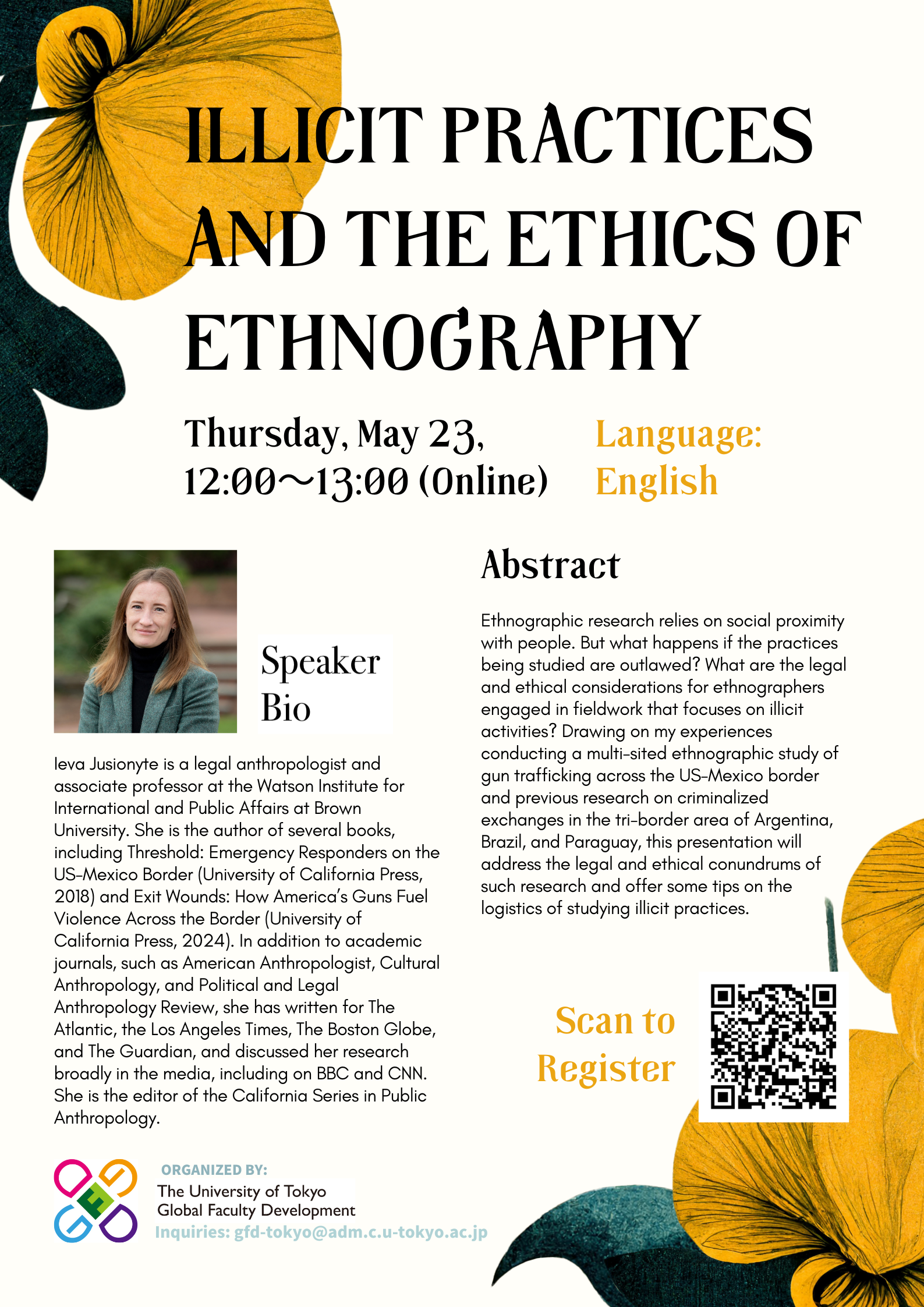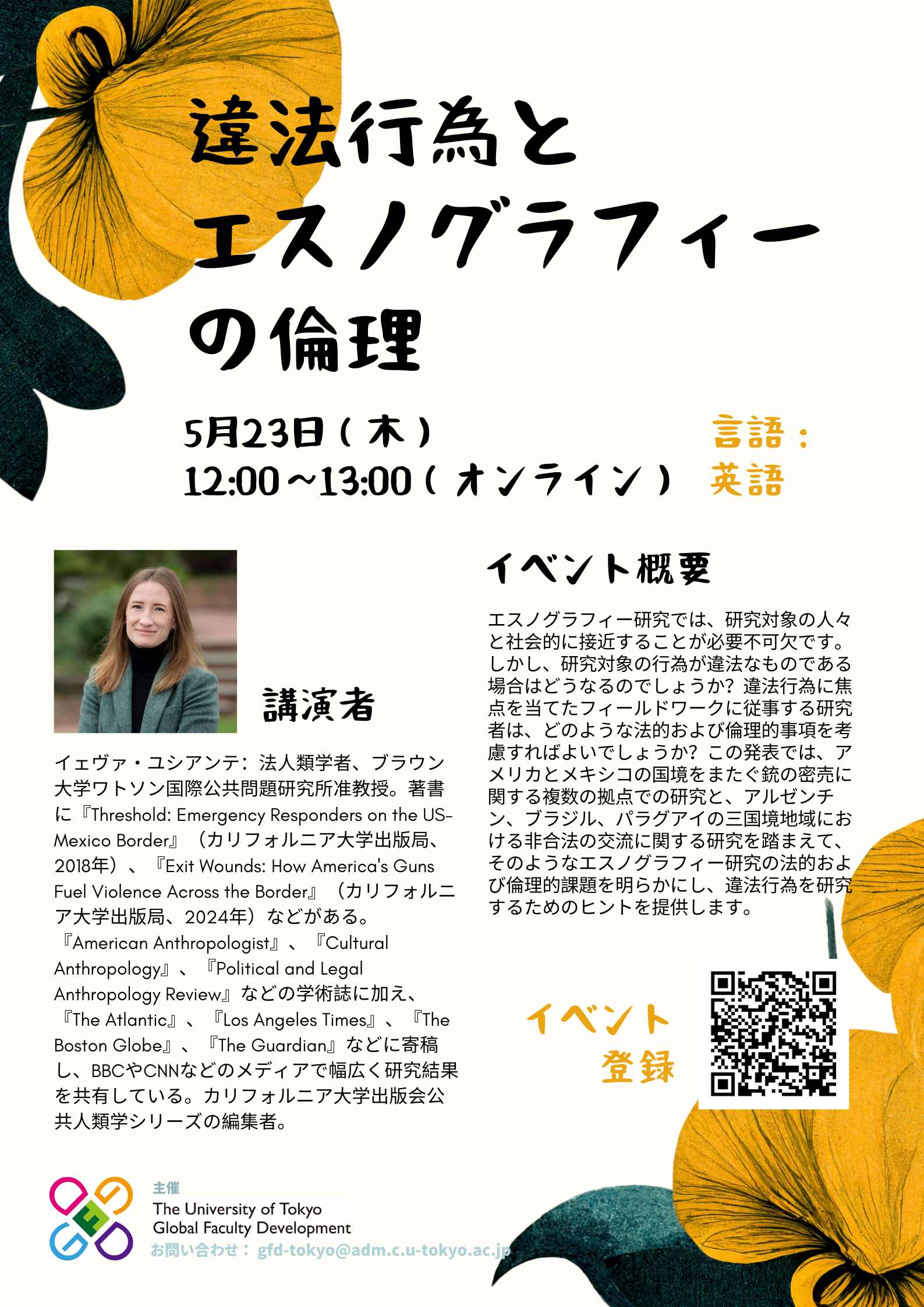
- TALK EVENTS
5.23 Illicit Practices and the Ethics of Ethnography 違法行為とエスノグラフィーの倫理
Event Details
Date/Time: Thursday, May 23, 12:00-13:00
Online: Zoom
Speaker: Ieva Jusionyte
Language: English
Speaker Bio

Ieva Jusionyte イェヴァ・ユシアンテ
Ieva Jusionyte is a legal anthropologist and associate professor at the Watson Institute for International and Public Affairs at Brown University. She is the author of several books, including Threshold: Emergency Responders on the US-Mexico Border (University of California Press, 2018) and Exit Wounds: How America’s Guns Fuel Violence Across the Border (University of California Press, 2024). In addition to academic journals, such as American Anthropologist, Cultural Anthropology, and Political and Legal Anthropology Review, she has written for The Atlantic, the Los Angeles Times, The Boston Globe, and The Guardian, and discussed her research broadly in the media, including on BBC and CNN. She is the editor of the California Series in Public Anthropology.
イェヴァ・ユシアンテ:法人類学者、ブラウン大学ワトソン国際公共問題研究所准教授。著書に『Threshold: Emergency Responders on the US-Mexico Border』(カリフォルニア大学出版局、2018年)、『Exit Wounds: How America’s Guns Fuel Violence Across the Border』(カリフォルニア大学出版局、2024年)などがある。『American Anthropologist』、『Cultural Anthropology』、『Political and Legal Anthropology Review』などの学術誌に加え、『The Atlantic』、『Los Angeles Times』、『The Boston Globe』、『The Guardian』などに寄稿し、BBCやCNNなどのメディアで幅広く研究結果を共有している。カリフォルニア大学出版会公共人類学シリーズの編集者。
Learn moreAbstract
Ethnographic research relies on social proximity with people. But what happens if the practices being studied are outlawed? What are the legal and ethical considerations for ethnographers engaged in fieldwork that focuses on illicit activities? Drawing on my experiences conducting a multi-sited ethnographic study of gun trafficking across the US-Mexico border and previous research on criminalized exchanges in the tri-border area of Argentina, Brazil, and Paraguay, this presentation will address the legal and ethical conundrums of such research and offer some tips on the logistics of studying illicit practices.
エスノグラフィー研究では、研究対象の人々と社会的に接近することが必要不可欠です。しかし、研究対象の行為が違法なものである場合はどうなるのでしょうか?違法行為に焦点を当てたフィールドワークに従事する研究者は、どのような法的および倫理的事項を考慮すればよいでしょうか?この発表では、アメリカとメキシコの国境をまたぐ銃の密売に関する複数の拠点での研究と、アルゼンチン、ブラジル、パラグアイの三国境地域における非合法の交流に関する研究を踏まえて、そのようなエスノグラフィー研究の法的および倫理的課題を明らかにし、違法行為を研究するためのヒントを提供します。
Contact
gfd-tokyo@adm.c.u-tokyo.ac.jp


